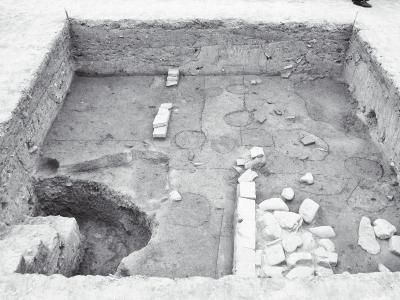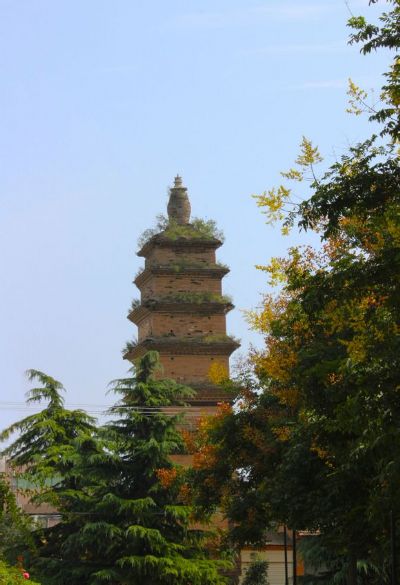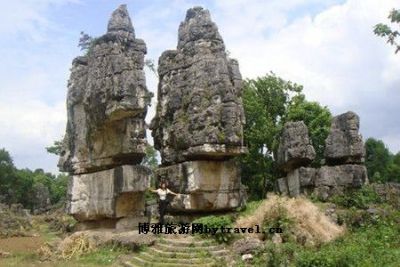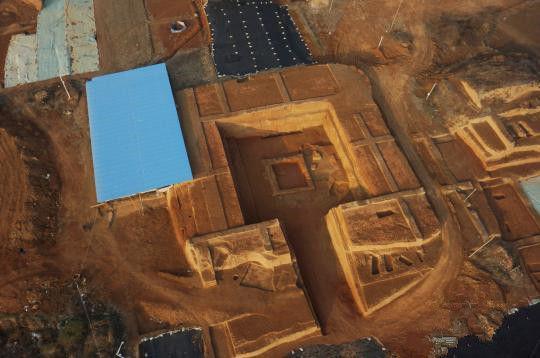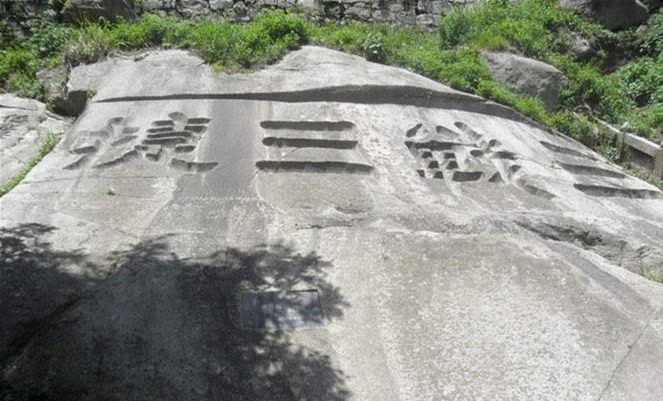Unveiling Lincang: Your Ultimate Travel Guide to Fengqing Chachang Laochangqu Jiuzhi
An Essential Guide to Visiting Lincang Fengqing Chachang Laochangqu Jiuzhi
In This Guide
- An Essential Guide to Visiting Lincang Fengqing Chachang Laochangqu Jiuzhi
- The Rich History of Lincang Fengqing Chachang Laochangqu Jiuzhi
- Main Highlights: What to See at Lincang Fengqing Chachang Laochangqu Jiuzhi
- Planning Your Visit: A Practical Guide
- Tickets, Hours, and Booking
- How to Get There
- Local Cuisine and Accommodation
- Frequently Asked Questions
- Final Thoughts on Your Trip
Nestled in the verdant hills of Lincang City, the Lincang Fengqing Chachang Laochangqu Jiuzhi, or the Old Fengqing Tea Factory, stands as a living testament to China’s rich tea heritage. Established in 1939, this site is revered as the birthplace of the renowned Dianhong tea, a variety celebrated both domestically and internationally for its rich flavor and vibrant color. The factory complex, with its unique Soviet-style architecture from the 1950s, features a series of interconnected buildings that narrate the evolution of tea production in this region.
As a designated National Key Cultural Relic Protection Unit, the Old Fengqing Tea Factory not only serves as a glimpse into the past but also plays a crucial role in the preservation and study of tea culture in China. Here, visitors can immerse themselves in the legacy of Dianhong tea, exploring the processes that have shaped its production over the decades. The site is more than just a historical landmark; it is a vibrant hub for those seeking to understand the nuances of Chinese tea craftsmanship.
For tea enthusiasts and curious travelers alike, a visit to the Old Fengqing Tea Factory is an invitation to discover the intricate tapestry of flavors and traditions that define this celebrated beverage. Whether you are wandering through the factory grounds or sipping a freshly brewed cup of Dianhong tea, you will find that this location offers not only a taste of history but also a deep connection to the cultural practices that have made tea an integral part of Chinese life.
The Rich History of Lincang Fengqing Chachang Laochangqu Jiuzhi
Nestled in the scenic landscapes of Fengqing County in Lincang, the old site of the Fengqing Tea Factory (凤庆茶厂老厂区旧址) holds a significant place in China’s tea culture and history. Established in 1939, this historic factory is recognized as the birthplace of the renowned Dianhong tea, or Yunnan black tea, which has garnered international acclaim for its rich flavor and quality.
The architectural remnants of the factory showcase Soviet-style buildings constructed in the 1950s, including an office building and several processing plants interconnected by railway tracks. These structures serve not only as a testament to the factory’s operational history but also as a valuable resource for the study of Chinese tea culture and industry.
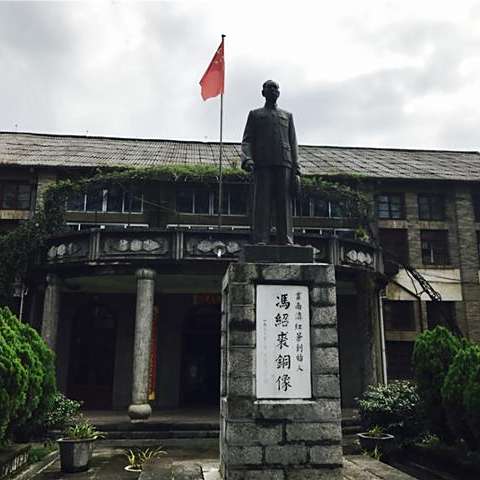
Lincang Fengqing Chachang Laochangqu Jiuzhi.
Over the decades, the Fengqing Tea Factory has played a pivotal role in the development of Yunnan’s tea industry, particularly in the production of Dianhong tea, which became a symbol of the region’s heritage. The factory’s historical significance was recognized in 2019 when it was designated a national key cultural relic protection unit, highlighting its importance as an irreplaceable cultural asset.
Visitors to the old factory site can explore the preserved buildings and learn about the traditional processes of tea production, which have remained largely unchanged over the years. This location serves as a living museum, allowing tourists to immerse themselves in the rich history of tea production in Yunnan while also enjoying the stunning natural beauty of the surrounding area.
The Fengqing Tea Factory not only reflects the historical evolution of tea production but also embodies the cultural narratives of the region, making it a must-visit destination for those seeking to understand the deep-rooted traditions of Chinese tea culture.
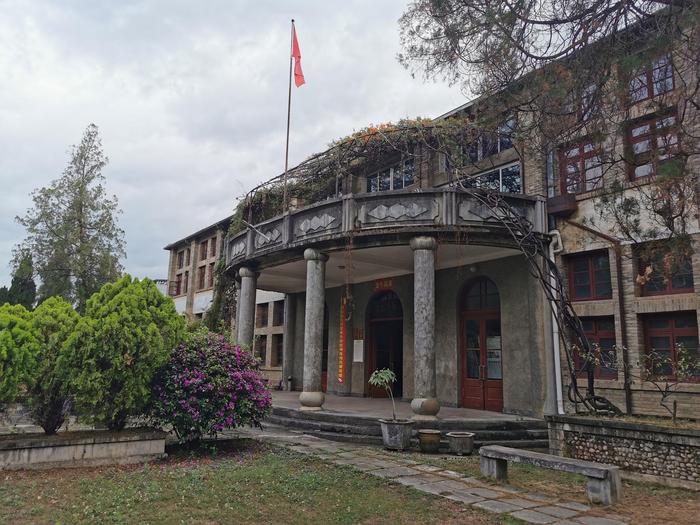
Lincang Fengqing Chachang Laochangqu Jiuzhi.
Main Highlights: What to See at Lincang Fengqing Chachang Laochangqu Jiuzhi
Nestled in the heart of Yunnan Province, the Lincang Fengqing Chachang Laochangqu Jiuzhi (凤庆茶厂老厂区旧址) stands as a testament to China’s rich tea culture and history. This historical site, established in 1939, is renowned as the birthplace of the famous Dianhong tea, a celebrated variety that has captivated palates both domestically and internationally.
Visitors to the old tea factory site will be greeted by its distinctive Soviet-style architecture, a remnant of the 1950s, which includes a charming office building and several interconnected factory structures linked by old railway tracks. This unique design not only adds to the site’s aesthetic appeal but also serves as a physical narrative of the development of tea production in the region.
Designated as a nationally protected cultural heritage site in 2019, the old tea factory is an invaluable resource for researchers and tea enthusiasts interested in exploring the evolution of tea culture in China. Its preservation allows for a deeper understanding of the traditional methods of tea production and the historical significance of the tea trade along the ancient Tea Horse Road.
For those looking to immerse themselves in the local culture, the surrounding area is rich with attractions. Nearby, visitors can explore the ancient town of Lushi, known for its well-preserved architecture and vibrant local life, or take a leisurely stroll along the banks of the Lancang River, where stunning landscapes provide a picturesque backdrop for tea tasting experiences.
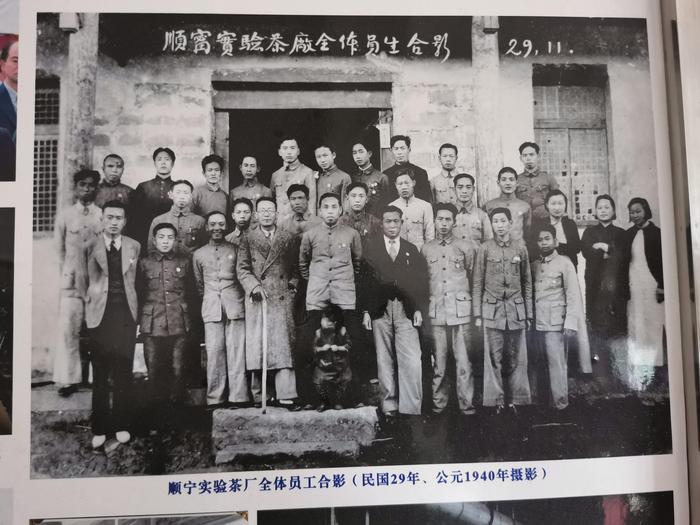
Lincang Fengqing Chachang Laochangqu Jiuzhi.
Moreover, the site serves as a gateway to the broader tea culture of the region, where one can participate in guided tours that include tea tastings, demonstrations of traditional tea-making processes, and insights into the agricultural practices that sustain this historic industry.
Don’t miss the opportunity to visit the Lincang Fengqing Chachang Laochangqu Jiuzhi, where history, culture, and the art of tea converge, offering a unique glimpse into one of China’s most cherished traditions.
Planning Your Visit: A Practical Guide
Practical Guide to Lincang Fengqing Chachang Laochangqu Jiuzhi (凤庆茶厂老厂区旧址)
Visiting the Lincang Fengqing Chachang Laochangqu Jiuzhi (Fengqing Tea Factory Old Site) offers a unique glimpse into the rich history of Chinese tea culture, particularly the renowned Yunnan Dianhong tea. This practical guide will help you navigate your visit to this historical site and the surrounding attractions.
Getting There
The Fengqing Tea Factory Old Site is located in Fengqing County, Lincang City, Yunnan Province. The best way to reach the site is to first travel to Lincang by train or bus, and then take a local minibus or taxi to Fengqing County. If you’re driving, the roads are generally well maintained, and the scenic landscape makes for an enjoyable journey.
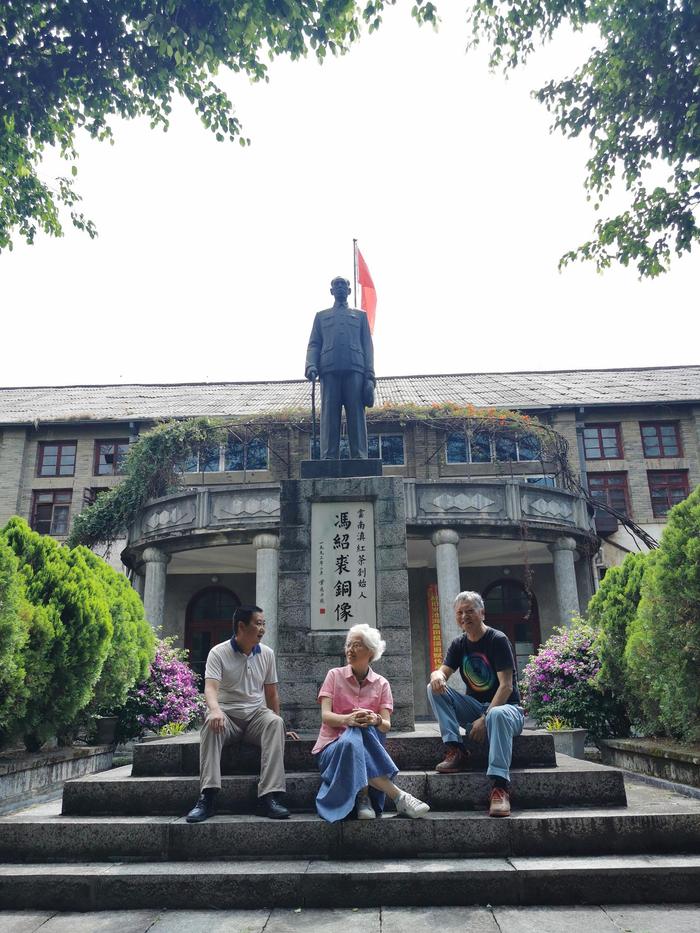
Lincang Fengqing Chachang Laochangqu Jiuzhi.
- From Lincang: Approximately 50 km (about 1 hour by car).
- From Kunming: About 400 km (around 6-7 hours by car or train).
Opening Hours
The site is open to visitors from 9:00 AM to 5:00 PM daily. It’s advisable to check in advance for any announcements about special events or maintenance closures.
Admission Fee
Entry to the Fengqing Tea Factory Old Site is free, making it an accessible stop for budget-conscious travelers. However, guided tours and tea tasting sessions may incur additional charges.
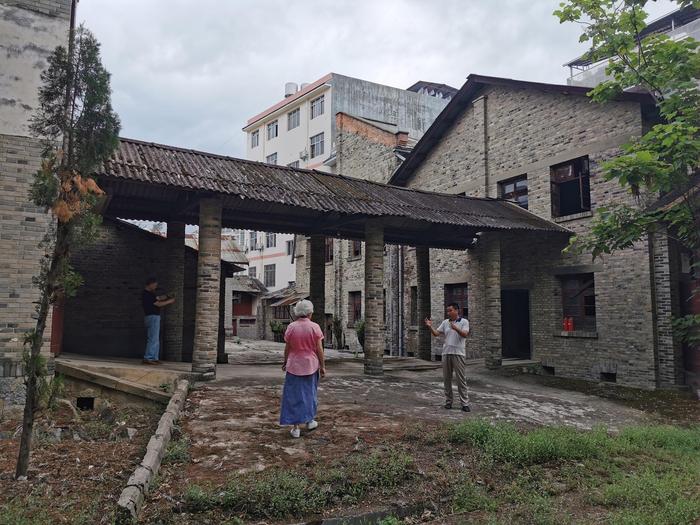
Lincang Fengqing Chachang Laochangqu Jiuzhi.
What to Expect
-
Historical Significance: The site is a national key cultural relic protection unit, established in 1939 as the birthplace of Dianhong tea. The preserved Soviet-style office building from the 1950s and several old factory buildings provide a backdrop to the story of tea production in China.
-
Guided Tours: Consider joining a guided tour to gain deeper insights into the tea-making process and the historical context of the site. Knowledgeable guides can enrich your experience with anecdotes and details that you might not discover on your own.
-
Tea Tasting: Don’t miss the opportunity to taste authentic Dianhong tea, known for its rich flavor and bright color. There are usually tea shops nearby where you can purchase tea leaves to take home.
Nearby Attractions
After exploring the tea factory, consider visiting these nearby sites to round out your experience in Fengqing:
- Ancient Mo Village: A picturesque village featuring traditional architecture and beautiful landscapes.
- Lushi Ancient Town: Known for its well-preserved streets and rich history.
- Dianhong First Village: A tea tourism complex where you can engage in tea picking and learn about tea production.
- 3200 Red Tea Cultural Park: An immersive experience focusing on tea culture, with various activities and educational opportunities.
Best Time to Visit
The ideal time to visit Fengqing is from April to October when the weather is mild, and the tea is at its freshest. This period is also perfect for enjoying the lush green landscapes of Yunnan Province.
Local Cuisine
While in Fengqing, take the opportunity to try local delicacies. Some recommended dishes include:

Lincang Fengqing Chachang Laochangqu Jiuzhi.
- Yunnan Ham: A local specialty that is cured and often served thinly sliced.
- Steamed Breads with Wild Vegetables: A unique twist on traditional bread, filled with local greens.
- Spicy Fish: Freshwater fish prepared with local spices, a must-try for culinary enthusiasts.
Tips for Travelers
- Language: While Mandarin is the primary language, English may not be widely spoken. Learning a few basic Mandarin phrases can enhance your experience.
- Cash: Carry some cash, as not all places may accept credit cards.
- Respect Local Customs: Be mindful of local traditions and practices, especially when interacting with local communities.
By following this practical guide, you can ensure a rewarding visit to the Lincang Fengqing Chachang Laochangqu Jiuzhi, immersing yourself in the profound history and culture of Chinese tea. Enjoy your journey!
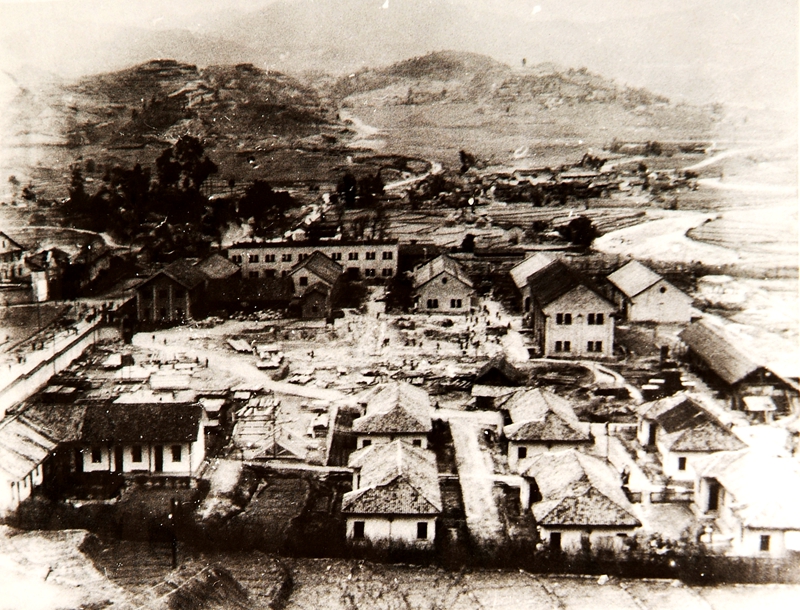
Lincang Fengqing Chachang Laochangqu Jiuzhi.
Tickets, Hours, and Booking
Visiting the Lincang Fengqing Chachang Laochangqu Jiuzhi, an important historical site in China’s tea culture, offers a unique glimpse into the rich heritage of Yunnan’s famous Dianhong tea. The site, which is recognized as a national key cultural relic protection unit, is home to the original Fengqing Tea Factory, founded in 1939 and renowned for its production of Dianhong tea.
Ticket Information
-
Admission Fee: Entry to the site is generally free. However, guided tours and special exhibitions may incur additional charges, so it’s advisable to check in advance.
-
Opening Hours: The site is open daily from 9:00 AM to 5:00 PM. It is recommended to visit earlier in the day to fully explore the grounds and enjoy the historical architecture without the crowds.
-
Guided Tours: For a deeper understanding of the site’s historical significance and the tea production process, consider booking a guided tour. These tours often include tastings of various types of Dianhong tea, allowing visitors to appreciate the flavors that have made this tea famous worldwide.
-
Location Accessibility: The site is conveniently located in Fengqing County, approximately 40 kilometers from Lincang City. Public transportation options include buses and taxis, making it easily accessible for travelers. If you prefer to drive, ample parking is available nearby.
-
Special Events: Occasionally, the site hosts cultural events and tea festivals. It is advisable to check local listings or the official Fengqing tourism website for any upcoming events that might enhance your visit.
When planning your trip, keep in mind that the best time to visit is from April to October, when the weather is pleasant, and the surrounding tea plantations are in full bloom. Exploring this historical site not only offers insight into the tea-making process but also immerses you in the rich cultural tapestry of Yunnan Province.
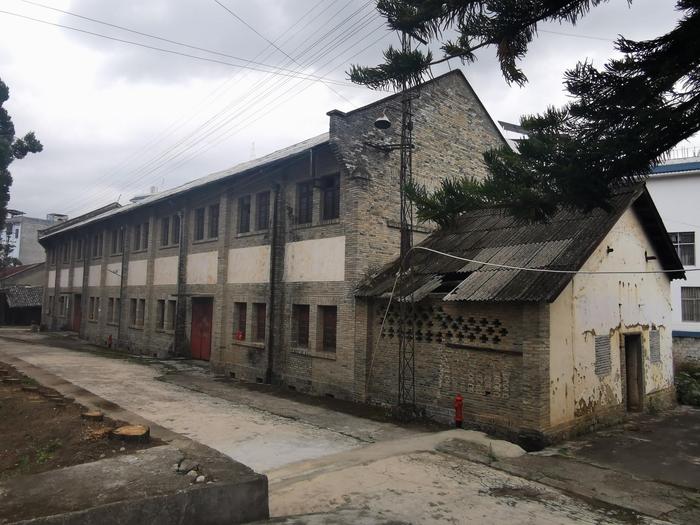
Lincang Fengqing Chachang Laochangqu Jiuzhi.
How to Get There
Traveling to Lincang Fengqing Chachang Laochangqu Jiuzhi, the historical site of the Fengqing Tea Factory, offers several convenient transportation options for visitors eager to explore this culturally rich destination in Yunnan Province, China.
Getting There
By Train:
The nearest major rail hub is in Yunnan Province, from which travelers can take a high-speed train to Yuncun (云县). This scenic train ride presents a perfect opportunity to enjoy the beautiful landscapes of Yunnan. Once you arrive at Yuncun station, you can transfer to a minibus or taxi for a relatively short journey to Fengqing County, which is approximately 114 kilometers away. The bus ride typically takes around 3.5 hours.
By Bus:
For those who prefer road travel, long-distance buses operate frequently from major cities in Yunnan, including Kunming, the provincial capital. Buses heading to Fengqing County can be boarded at the Kunming South Bus Station. The journey usually takes about 7 to 8 hours, depending on traffic conditions.
By Car:
Travelers who wish to explore at their own pace may consider renting a car. The drive from Kunming to Fengqing is approximately 290 kilometers and takes around 5 to 6 hours. The route is well-marked and provides beautiful views of the surrounding countryside. Ensure you have a GPS or a reliable map, as some areas may be remote.
Local Transportation
Once in Fengqing County, local transportation options include:
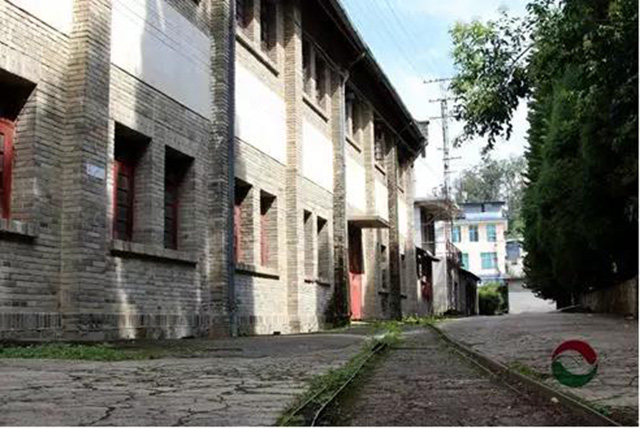
Lincang Fengqing Chachang Laochangqu Jiuzhi.
-
Minibuses and Taxis: Within the county, minibuses frequently connect major attractions such as the old tea factory, ancient towns, and scenic spots. Taxis are also readily available and provide a convenient way to reach specific sites.
-
Bicycles and Walking: For the more adventurous, biking is a popular option, especially around the picturesque tea plantations and rural areas surrounding the Fengqing Tea Factory. Walking is also a delightful way to experience local culture and the natural beauty of the region.
Nearby Attractions
For those planning to explore nearby attractions, here are some travel times from the Fengqing Tea Factory site:
- Gumo Village (古墨村): 31 kilometers away, approximately a 1-hour drive.
- Lushi Ancient Town (鲁史古镇): 36 kilometers away, around a 1-hour drive.
- Mangjiang Du Lakeside Resort (漭街渡百里长湖): 54 kilometers away, taking about 1.5 hours by car.
- Dianhong First Village (滇红第一村): Just 6 kilometers, about a 15-minute drive.
- Wen Miao Leisure District (文庙休闲街区): 7.5 kilometers away, approximately a 15-minute trip.
Best Travel Practices
- Traveling in Groups: Joining a tour group can simplify transportation logistics, offering packaged deals that include visits to various attractions along with transportation.
- Timing: The best time to visit Fengqing and its attractions is from April to October, when the weather is pleasant, and the tea plantations are lush and vibrant.
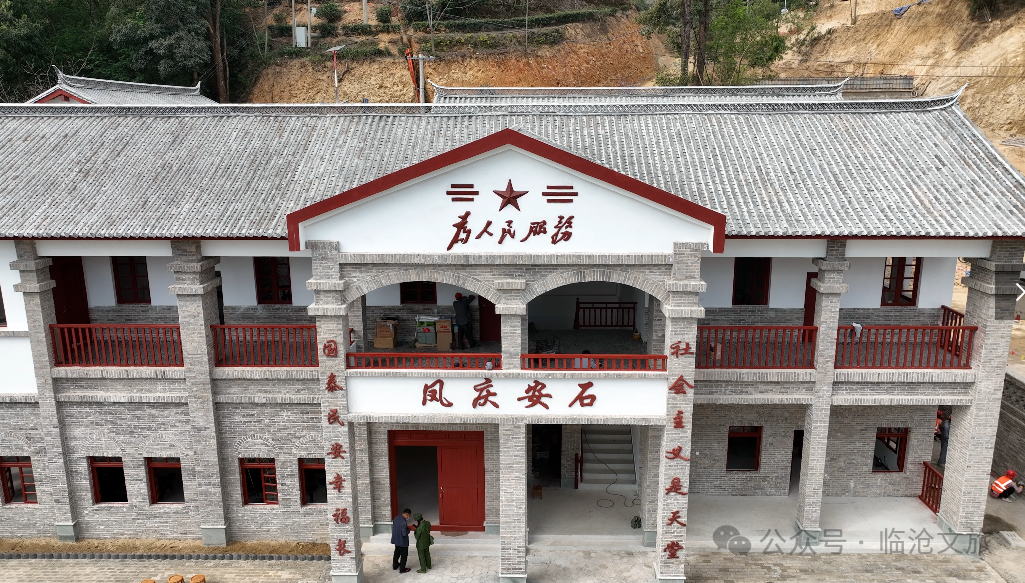
Lincang Fengqing Chachang Laochangqu Jiuzhi.
By considering these transportation options and tips, visitors can enjoy a seamless and enriching experience at Lincang Fengqing Chachang Laochangqu Jiuzhi, diving deep into the history and culture of Yunnan’s renowned tea heritage.
Local Cuisine and Accommodation
When visiting the historic site of Lincang Fengqing Chachang Laochangqu Jiuzhi, immerse yourself in the rich local culture, especially through its culinary offerings and accommodation options.
Culinary Delights
Fengqing is renowned not just for its tea but also for its unique local cuisine. Here are some must-try dishes and dining spots:
-
Local Flavors at Xiaocaiyuan: Don’t miss the passion fruit boiled catfish, barley cakes, and home-style dishes that showcase the region’s fresh ingredients.
-
Drunken Beauty Fire Pit: A fantastic spot for barbecue lovers, offering a variety of grilled meats, including the famous “running chicken,” known for its fresh and flavorful taste.
-
Tongxin Food Hall: This eatery is famous for its garlic shrimp and pork belly stew, combining traditional flavors with a contemporary twist. The atmosphere is lively, perfect for a casual meal.
-
Gumo Inn: For a taste of local delicacies, try their dishes featuring Jiangbei ham and wild mountain vegetables, which reflect the natural bounty of the surrounding area.
-
Specialty Products: While in Fengqing, be sure to sample local teas like Dianhong, Pu’er, and the region’s famous ham, known for its rich flavor. Other unique local snacks include stinky tofu, walnuts, and honeycomb.
Accommodation Options
Fengqing offers a range of accommodations that cater to different preferences and budgets:
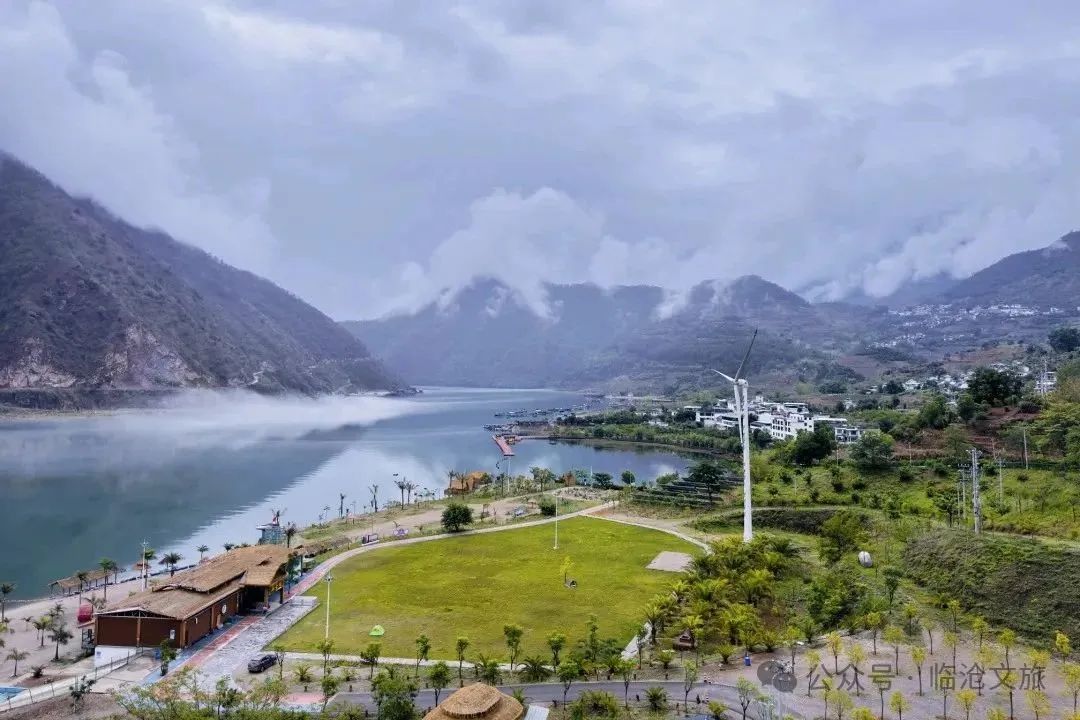
Lincang Fengqing Chachang Laochangqu Jiuzhi.
-
Gumo Inn: Positioned in a picturesque area, this inn provides a cozy atmosphere with traditional decor. Guests can enjoy a peaceful night’s sleep and wake up to stunning views of the surrounding hills.
-
Fengqing Tea Cultural Resort: This comprehensive resort offers an immersive experience in tea culture. With modern amenities and close proximity to scenic tea gardens, it’s an excellent choice for travelers looking to relax and learn about the local tea industry.
-
Homestays: For a more authentic experience, consider staying at one of the local homestays. These accommodations often provide meals made from fresh, local ingredients and a chance to connect with the friendly residents of Fengqing.
-
Hotels in Fengqing County: There are various hotels in the county center that offer comfortable lodging with easy access to local attractions and dining options. Look for those that provide English-speaking staff for added convenience.
Travel Tip
Be sure to pair your meals with a cup of the renowned Fengqing black tea. It’s an experience that perfectly encapsulates the essence of this charming tea-producing region. Whether you’re enjoying a leisurely meal or exploring the historical significance of the tea factory, Fengqing promises an unforgettable culinary adventure.
Frequently Asked Questions
- What is the historical significance of the Lincang Fengqing Chachang Laochangqu Jiuzhi?
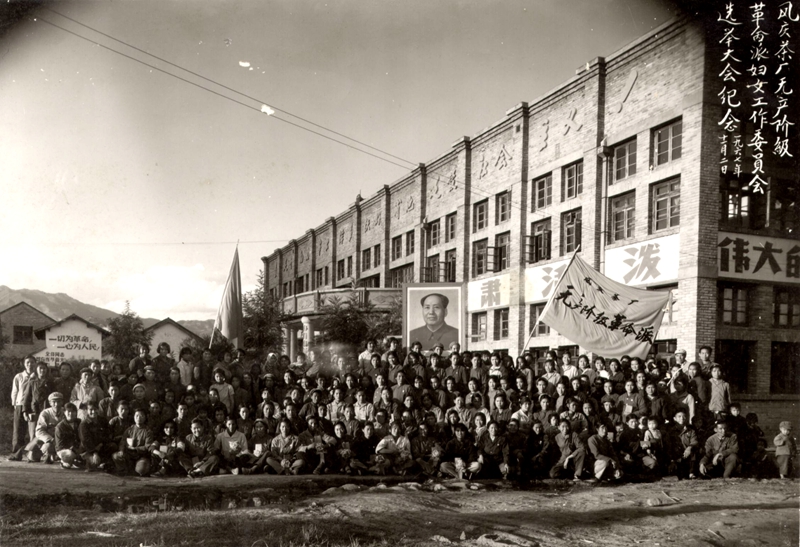
Lincang Fengqing Chachang Laochangqu Jiuzhi.
The Lincang Fengqing Chachang Laochangqu Jiuzhi, established in 1939, is recognized as the birthplace of the famous Dianhong tea. It holds immense historical significance as it reflects the evolution of tea production in China and serves as a vital resource for studying Chinese tea culture.
- Is there an entrance fee to visit the old tea factory site?
Yes, there is a nominal entrance fee for visitors. The fee helps in the maintenance and preservation of this important cultural heritage site. It is advisable to check the latest information regarding pricing before your visit.
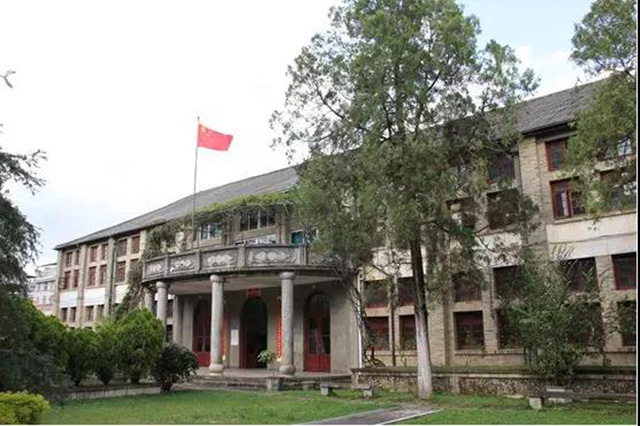
Lincang Fengqing Chachang Laochangqu Jiuzhi.
- What are the opening hours of the Lincang Fengqing Chachang Laochangqu Jiuzhi?
The site typically opens daily from 9 AM to 5 PM. However, hours may vary on public holidays, so it’s best to confirm before planning your visit.
- Are there guided tours available at the site?
Yes, guided tours are available and are highly recommended to enhance your understanding of the history and significance of the tea factory. These tours often include tastings and insights into the tea-making process.
- What other attractions are nearby that I can visit?
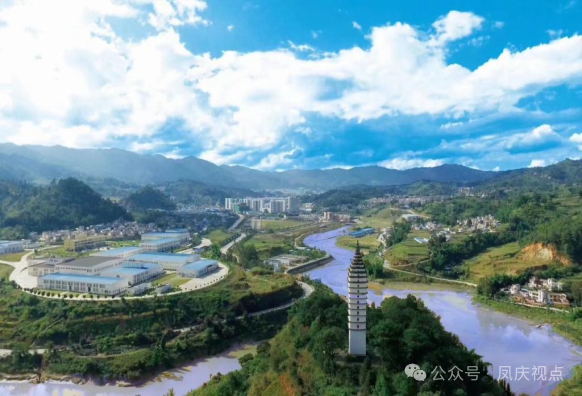
Lincang Fengqing Chachang Laochangqu Jiuzhi.
Nearby attractions include the ancient town of Lushi, the scenic sites along the Lancang River, and the famous Yulong Lake. These locations offer a blend of natural beauty and cultural experiences, making them ideal for a day trip.
- Can I purchase tea products at the site?
Absolutely! The site features a shop where visitors can purchase a variety of tea products, including the renowned Dianhong tea. This is a great opportunity to take home a taste of the region’s tea heritage.
- What is the best time of year to visit the Lincang Fengqing Chachang Laochangqu Jiuzhi?
The ideal time to visit is between April and October when the weather is pleasant and conducive for exploring the outdoor areas of the site and surrounding attractions.
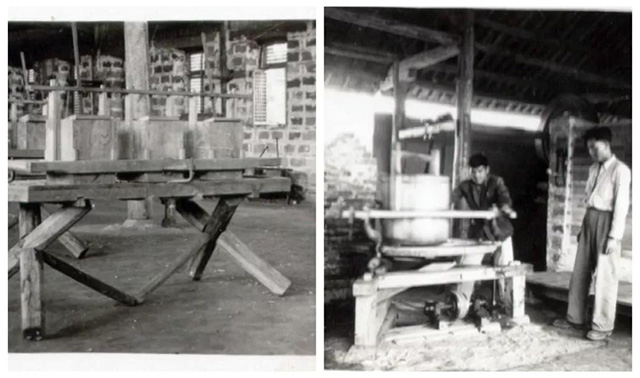
Lincang Fengqing Chachang Laochangqu Jiuzhi.
- How do I get to Lincang Fengqing Chachang Laochangqu Jiuzhi?
The site is accessible via public transport or by car. Visitors can take a train to Yunnan Province and then use local buses or taxis to reach Fengqing County. For those driving, there are clear signs directing you to the site from major roads.
Final Thoughts on Your Trip
Visiting the Lincang Fengqing Chachang Laochangqu Jiuzhi is not merely an excursion; it is an invitation to immerse yourself in the rich history and vibrant culture of Chinese tea. This historic site, recognized as a national key cultural relic, stands as a testament to the artistry and tradition behind the famed Dianhong tea, renowned both locally and internationally.
As you wander through the remnants of the old tea factory, dating back to 1939, you will find yourself transported to a time when the labor and passion of tea artisans shaped a legacy that endures to this day. The Soviet-style architecture and interconnected factories echo stories of hard work and dedication, making it an ideal spot for history enthusiasts and tea lovers alike.
Beyond the factory, the surrounding region of Fengqing offers a tapestry of experiences, from picturesque tea plantations to charming ancient towns, all set against the backdrop of breathtaking natural beauty. A journey here is a journey into the heart of tea culture, where each cup of Dianhong tea tells a story steeped in tradition and community.
In conclusion, a visit to the Lincang Fengqing Chachang Laochangqu Jiuzhi is a chance to appreciate the profound connection between people and their land, to savor the flavors of history, and to understand the intricate tapestry of Chinese tea culture. Whether you are seeking knowledge, adventure, or relaxation, this enchanting destination promises an unforgettable experience that lingers long after you leave. Embrace the spirit of tea and let it enrich your travels in this remarkable part of Yunnan Province.
